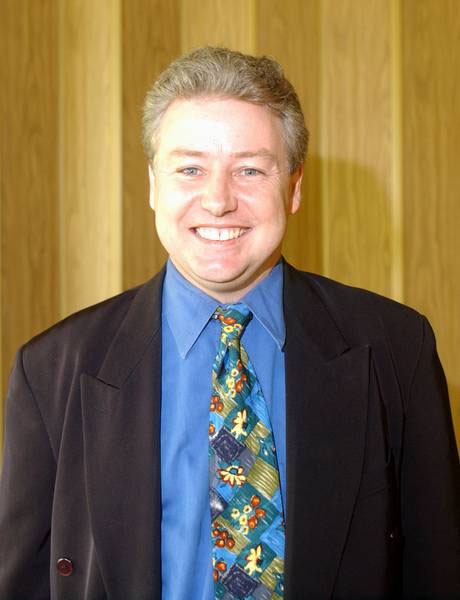Visiting professor to lecture on disability, impairment

GVL / Courtesy – toledoblade.com
Feb 22, 2018
The department of sociology at Grand Valley State University is presenting a lecture on impairment and disability held by University of Toledo professor Mark Sherry. The lecture will take place Monday, Feb. 26, from 3 p.m. to 4 p.m. in Lake Michigan Hall, Room 176.
This lecture will be based off Sherry’s forthcoming book, “A Sociology of Impairment.” After conducting 600 interviews with different individuals with various health conditions, Sherry proposes a “social model of impairment.” Here, the lecturer will explore how “impairment” and “disability” are ideas created by society that don’t truly reflect the individual experiences of people with health challenges.
“Individuals suffering from impairments or disabilities are poorly understood by the wider population and also suffer from discrimination due to their condition,” said Joel Stillerman, GVSU professor of sociology, via email. “Hence, it is important for the general population to have an understanding of these people and dispel some of these myths.
“The sociology department seeks to expose students and faculty to research conducted by scholars in the region. The sociology of disability is an important area of the discipline but is not widely taught in our courses at Grand Valley.”
Sherry, a professor in the Department of Sociology and Anthropology at the University of Toledo, focuses on five main areas in his work: traumatic brain injury, abuse and hate crimes against disabled people, human trafficking of disabled people, social theory and the labor movement. He has published two books, “If Only I Had a Brain: Deconstructing Brain Injury” and “Disability Hate Crimes: Does Anyone Really Hate Disabled People?”
“It was apparent to me that there was a need to discuss impairment and disability in a way that engaged with people’s stories but also framed them in terms of contemporary social theory,” Sherry said via email.
Sherry believes that individuals can be more inclusive toward people with disabilities.
“People with a variety of health conditions may not be believed, encounter stereotypes or prejudice that limit their opportunities, and be frustrated by bureaucracies,” he said. “They could also encounter supportive environments. I’m interested in the lessons that we can learn from their experiences. In particular, I think we can listen to their stories and improve our practice, policy, theories and methods to be more inclusive.
“These illness narratives, as we call them, teach us a lot about the human condition, about what is important in life, and about equality and human dignity.”
While the event is sponsored by the GVSU department of sociology, it is open to all majors.
“Understanding disability and chronic illness is useful for students in all majors, not just the obvious ones like medicine, nursing, allied health or social work,” Sherry said. “For instance, sociology majors can learn about the unique forms of power disabled people experience, understand the impairments that are caused by environmental racism and begin to identify the specific barriers that ethnic minorities experience.
“Students in education encounter large numbers of disabled students and need to develop their disability awareness and inclusive skill set, too. Engineering students have a professional obligation to include disabled people through universal design principles. Disability and chronic illness cuts across all disciplines.”
The goal of the lecture is for students to gain a new perspective of the different ways individuals with disabilities and impairments live their daily lives.
“I hope that students who attend the talk come away with a richer and more sophisticated understanding of disability and impairment,” Sherry said. “If they haven’t experienced physical or mental health problems themselves, they will know someone who has, and hopefully this lecture will give them a set of tools to better understand what these people go through.
“I also want to highlight the complexity of the identities of people with a variety of health conditions. Even if they have severe impairments, such as being amputees, being deaf or having serious mental illness, many people will not identify as being ‘disabled.’”
Sherry’s lecture is LIB 100- and 201-approved, and is free and open to the public.























